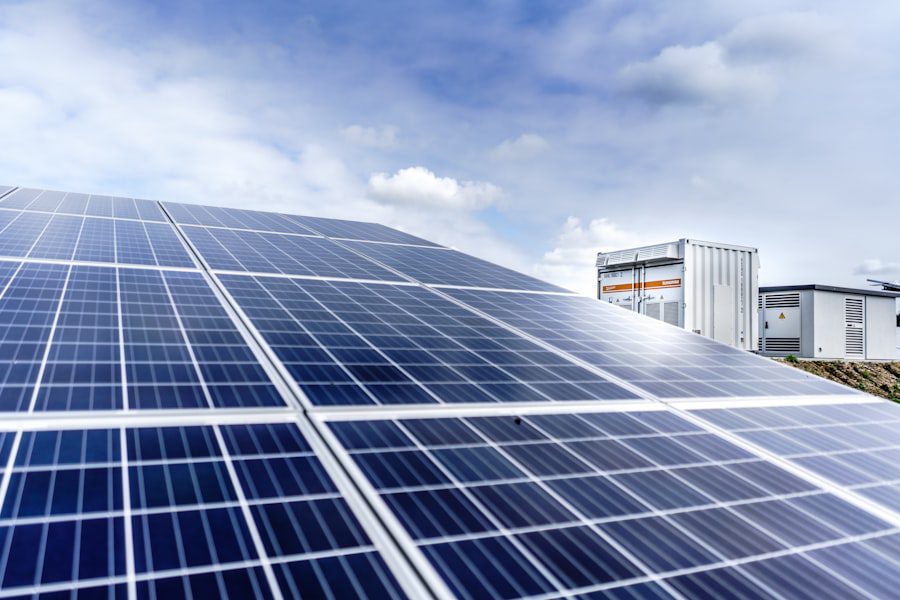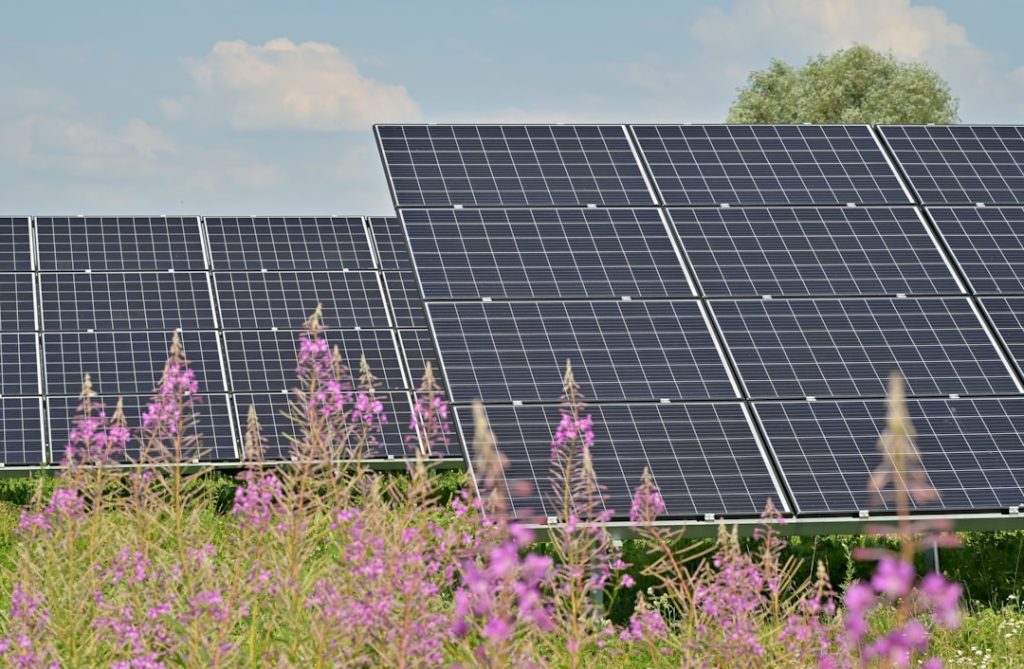Clean energy is crucial for Kabul, Afghanistan’s capital, due to several factors. The city’s current dependence on fossil fuels for energy production has resulted in severe air pollution and environmental degradation. Coal and diesel used for heating and electricity generation contribute to high levels of air pollution, posing significant health risks to residents.
Implementing clean energy sources such as solar, wind, and hydroelectric power can substantially reduce air pollution and enhance the overall environmental quality in Kabul. Furthermore, adopting clean energy is essential for Kabul’s energy security and independence. The city’s heavy reliance on imported fossil fuels makes it susceptible to price fluctuations and supply disruptions.
Investing in clean energy infrastructure can decrease Kabul’s dependence on foreign energy sources and improve its energy security. Clean energy sources are renewable and abundant in Afghanistan, offering a sustainable and reliable long-term solution to meet the city’s energy demands.
Key Takeaways
- Clean energy is crucial for sustainable development and environmental protection in Kabul
- Kabul faces energy challenges such as unreliable supply, high costs, and environmental pollution
- Potential clean energy solutions for Kabul include solar power, wind energy, and hydropower
- A strong policy and regulatory framework is needed to support the adoption of clean energy in Kabul
- Funding and investment opportunities are available for clean energy projects in Kabul, including international aid and private investment
Current Energy Challenges in Kabul
Unreliable Electricity Access
The city’s residents lack reliable and affordable electricity access, which is a primary challenge. The existing power grid is outdated and insufficient to meet the growing demand for electricity, leading to frequent power outages and unreliable service.
Air Pollution and Health Concerns
The use of fossil fuels for heating and electricity generation causes a high level of air pollution, releasing harmful pollutants into the air and leading to respiratory illnesses and other health issues among the city’s population.
Vulnerability to Price Fluctuations and Supply Disruptions
The reliance on imported fossil fuels makes Kabul vulnerable to price fluctuations and supply disruptions, posing a threat to its energy security.
Potential Clean Energy Solutions for Kabul

To address the energy challenges in Kabul, there are several potential clean energy solutions that can be implemented. One of the most viable options is the development of solar power infrastructure in the city. Kabul receives abundant sunlight throughout the year, making it an ideal location for solar energy generation.
By investing in solar panels and solar farms, the city can harness this renewable energy source to meet its electricity needs and reduce its reliance on fossil fuels. Another potential solution is the development of small-scale hydroelectric power plants in Kabul. The city is situated near several rivers and streams, providing ample opportunities for hydroelectric power generation.
By tapping into this clean energy source, Kabul can diversify its energy mix and reduce its carbon footprint. Additionally, the installation of wind turbines in suitable locations around the city can further contribute to clean energy generation and help meet the growing demand for electricity.
Policy and Regulatory Framework for Clean Energy in Kabul
| Policy and Regulatory Framework for Clean Energy in Kabul | |
|---|---|
| Policy Name | Renewable Energy Policy for Kabul |
| Regulatory Body | Kabul Energy Regulatory Commission |
| Renewable Energy Targets | 20% of energy from renewables by 2030 |
| Feed-in Tariff | Set at 0.10 per kWh for solar energy |
| Net Metering | Available for residential and commercial users |
The implementation of a robust policy and regulatory framework is essential for promoting clean energy adoption in Kabul. The government of Afghanistan should prioritize the development of policies that incentivize investment in clean energy infrastructure and create a conducive environment for clean energy projects. This can include offering tax incentives, subsidies, and other financial support mechanisms to attract private sector investment in clean energy initiatives.
Furthermore, the government should establish clear regulations and standards for clean energy development to ensure safety, reliability, and efficiency. This can involve setting renewable energy targets, implementing grid integration guidelines, and establishing quality standards for clean energy equipment and technologies. By creating a transparent and predictable regulatory environment, Kabul can attract both domestic and international investors to participate in its clean energy transition.
Funding and Investment Opportunities for Clean Energy Projects in Kabul
There are significant funding and investment opportunities available for clean energy projects in Kabul. International development agencies, multilateral organizations, and bilateral donors often provide financial support for clean energy initiatives in developing countries like Afghanistan. The government of Afghanistan can leverage these funding sources to finance clean energy projects and infrastructure development in Kabul.
Moreover, there is a growing interest from private sector investors in clean energy opportunities in Kabul. With the right policy incentives and regulatory support, private investors can play a crucial role in financing and implementing clean energy projects in the city. This can include investments in solar power plants, wind farms, hydroelectric facilities, and energy storage systems to enhance the city’s energy resilience and sustainability.
Community Engagement and Education for Clean Energy Adoption in Kabul

Informing Residents about Clean Energy Benefits
Community engagement and education are vital components of promoting clean energy adoption in Kabul. It is essential to raise awareness among the city’s residents about the benefits of clean energy and the importance of transitioning away from fossil fuels. This can involve conducting public outreach campaigns, organizing community workshops, and providing educational materials to inform residents about clean energy technologies and their potential impact on air quality and public health.
Community-Led Decision Making for Clean Energy Projects
Furthermore, community engagement can involve soliciting input from local stakeholders to ensure that clean energy projects are designed and implemented in a manner that aligns with the needs and priorities of the community. By involving residents in the decision-making process, Kabul can foster a sense of ownership and support for clean energy initiatives, leading to greater acceptance and adoption of renewable energy technologies.
Building a Sense of Community Ownership
By engaging with local stakeholders and residents, Kabul can build a sense of community ownership and support for clean energy initiatives. This can lead to a greater sense of responsibility and accountability among residents, ultimately driving the adoption of clean energy technologies and contributing to a cleaner, healthier environment for the city’s inhabitants.
Monitoring and Evaluation of Clean Energy Implementation in Kabul
The monitoring and evaluation of clean energy implementation in Kabul are crucial for assessing the effectiveness of clean energy projects and ensuring their long-term sustainability. It is essential to establish robust monitoring mechanisms to track the performance of clean energy infrastructure, including solar panels, wind turbines, and hydroelectric facilities. This can involve collecting data on energy production, system efficiency, and environmental impact to gauge the success of clean energy initiatives.
Moreover, regular evaluation of clean energy projects can help identify areas for improvement and optimization. This can include conducting cost-benefit analyses, assessing the social and economic impact of clean energy deployment, and identifying opportunities for scaling up successful initiatives. By continuously monitoring and evaluating clean energy implementation, Kabul can make informed decisions about future investments and policy adjustments to advance its transition towards a sustainable and resilient energy future.
In conclusion, clean energy is essential for addressing the current energy challenges in Kabul, improving environmental quality, enhancing energy security, and promoting sustainable development. By prioritizing clean energy solutions such as solar power, hydroelectricity, and wind energy, Kabul can reduce its reliance on fossil fuels, mitigate air pollution, and create new opportunities for economic growth. To achieve this transition successfully, it is crucial to establish a supportive policy framework, attract investment, engage with local communities, and monitor the implementation of clean energy projects effectively.
With concerted efforts from government agencies, private sector investors, civil society organizations, and local residents, Kabul can realize its potential as a clean energy leader in Afghanistan and set an example for other cities facing similar energy challenges around the world.
For more information on clean energy strategies in Kabul, you can read the article “Kabul’s Clean Energy Drive: Initiatives for a Sustainable Future” on Almassiyah’s website. This article discusses the various initiatives and efforts being made in Kabul to promote clean energy and sustainability. It provides insight into the challenges and opportunities for implementing clean energy strategies in the city. Source
FAQs
What are clean energy strategies?
Clean energy strategies refer to the various methods and technologies used to generate energy in a way that minimizes environmental impact and reduces carbon emissions. This can include renewable energy sources such as solar, wind, hydro, and geothermal power, as well as energy efficiency measures and energy conservation practices.
Why are clean energy strategies important in Kabul?
Clean energy strategies are important in Kabul, and in many other cities, because they can help reduce air pollution, improve public health, and mitigate the impacts of climate change. Kabul, like many other urban areas, faces challenges related to air quality and energy access, and clean energy strategies can help address these issues.
What are some examples of clean energy strategies that could be implemented in Kabul?
Some examples of clean energy strategies that could be implemented in Kabul include the development of solar power systems for residential and commercial buildings, the expansion of wind power generation in the surrounding areas, the promotion of energy-efficient building designs, and the adoption of electric vehicles for transportation.
What are the potential benefits of implementing clean energy strategies in Kabul?
The potential benefits of implementing clean energy strategies in Kabul include reduced air pollution, improved public health, increased energy security, job creation in the clean energy sector, and a reduction in greenhouse gas emissions. Additionally, clean energy strategies can help diversify the energy mix and reduce reliance on imported fossil fuels.
What are some challenges to implementing clean energy strategies in Kabul?
Some challenges to implementing clean energy strategies in Kabul include the initial cost of infrastructure development, the need for supportive policies and regulations, technical and institutional capacity constraints, and the need for public awareness and acceptance of clean energy technologies. Additionally, the intermittent nature of some renewable energy sources can pose challenges for grid integration.



